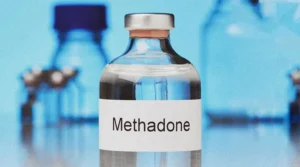Alcohol withdrawal can be a daunting and potentially dangerous experience for individuals seeking sobriety. With symptoms ranging from mild anxiety to severe seizures, finding effective treatments is paramount. While methadone is commonly associated with opioid addiction, its role in alcohol withdrawal management is lesser-known but equally significant. In this blog, we’ll delve into the challenges of alcohol withdrawal, explore methadone’s effectiveness, and discuss its potential benefits and considerations.
Contents
What Are The Challenges Of Alcohol Withdrawal?
 The challenges of alcohol withdrawal are multifaceted and can vary in severity depending on several factors. Here are some of the primary challenges associated with alcohol withdrawal:
The challenges of alcohol withdrawal are multifaceted and can vary in severity depending on several factors. Here are some of the primary challenges associated with alcohol withdrawal:
1. Physical Symptoms
Alcohol withdrawal symptoms can range from mild to severe, including tremors, sweating, nausea, vomiting, rapid heartbeat, elevated blood pressure, seizures, and in severe cases, delirium tremens (DTs). These physical symptoms can be highly distressing and potentially life-threatening if not managed properly.
2. Psychological Symptoms
Alongside physical symptoms, individuals undergoing alcohol withdrawal may also experience a range of psychological symptoms, such as anxiety, depression, irritability, mood swings, insomnia, and cognitive impairment.
3. Risk of Complications
Severe alcohol withdrawal symptoms, such as delirium tremens, pose a risk of complications, including dehydration, electrolyte imbalances, seizures, and even death in extreme cases. Without proper medical supervision and treatment, these complications can escalate rapidly.
4. Relapse Risk
The intense discomfort and distress associated with alcohol withdrawal may drive individuals to seek relief through alcohol consumption, leading to relapse. Relapse during withdrawal can be particularly dangerous, as the body’s tolerance to alcohol may have decreased, increasing the risk of overdose and other adverse outcomes.
5. Underlying Health Concerns
Alcohol withdrawal can exacerbate underlying health conditions, such as liver disease, cardiovascular issues, and mental health disorders. Managing these concurrent health concerns alongside alcohol withdrawal requires comprehensive and specialized care.
6. Social and Environmental Factors
Social and environmental factors, including access to support networks, socioeconomic status, living environment, and stressors, can influence the challenges of alcohol withdrawal. Lack of social support, unstable living conditions, and exposure to triggers for alcohol use can impede recovery efforts and increase the difficulty of withdrawal.
Addressing these challenges effectively requires a holistic approach to alcohol withdrawal management. And ongoing care to address underlying issues and promote long-term sobriety.
Is Methadone Used to Prevent Withdrawal Reactions?
Yes, methadone is sometimes used to prevent withdrawal reactions, particularly in cases of severe alcohol withdrawal syndrome (AWS) where standard treatments may be insufficient. While methadone is commonly associated with opioid addiction treatment, its pharmacological properties make it effective in managing certain symptoms of alcohol withdrawal.
Unlike shorter-acting medications, methadone provides sustained relief from withdrawal symptoms. And, allowing individuals to undergo a smoother and more controlled detoxification process. However, it’s important to note that methadone should only be used under medical supervision and as part of a comprehensive treatment plan. Close monitoring is essential to adjust dosage levels and minimize the risk of potential side effects.
How Does Methadone For Alcohol Withdrawal Work?
 Methadone for alcohol withdrawal management stems from its pharmacological properties and its impact on the brain’s neurochemistry. While primarily known for its role in treating opioid addiction, methadone’s mechanism of action makes it beneficial for addressing certain symptoms of alcohol withdrawal.
Methadone for alcohol withdrawal management stems from its pharmacological properties and its impact on the brain’s neurochemistry. While primarily known for its role in treating opioid addiction, methadone’s mechanism of action makes it beneficial for addressing certain symptoms of alcohol withdrawal.
Neurochemical Effects
Methadone acts on the central nervous system by binding to and activating the mu-opioid receptors in the brain. These receptors are involved in mediating pain perception, stress responses, and mood regulation. By stimulating these receptors, methadone helps mitigate the physical and psychological symptoms associated with alcohol withdrawal, such as anxiety, agitation, tremors, and cravings.
Stabilizing Neurotransmitter Levels
Chronic alcohol consumption disrupts the balance of neurotransmitters in the brain, including gamma-aminobutyric acid (GABA) and glutamate. This plays a crucial role in regulating neuronal activity. Methadone’s interaction with opioid receptors modulates the release of these neurotransmitters. And, helping restore equilibrium and alleviate withdrawal symptoms.
Long Half-Life and Gradual Withdrawal
Methadone’s extended half-life and slow onset of action make it suitable for tapering off alcohol dependence gradually. Unlike shorter-acting medications, methadone provides sustained relief from withdrawal symptoms. Hence, reducing the risk of rebound symptoms and preventing relapse. This controlled tapering process allows individuals to undergo detoxification more comfortably and safely.
Overall, methadone’s ability to modulate neurotransmitter activity, alleviate withdrawal symptoms, and facilitate a gradual tapering process makes it a valuable component of comprehensive alcohol withdrawal management strategies. However, methadone needs to be used under medical supervision and as part of a tailored treatment plan.
What Are The Benefits You Can Expect?
When using methadone for alcohol withdrawal, several benefits can be expected:
- Symptom Relief
Methadone effectively alleviates both physical and psychological symptoms associated with alcohol withdrawal, including tremors, anxiety, agitation, nausea, vomiting, and cravings. By targeting the brain’s opioid receptors, methadone helps stabilize the neurochemical imbalances induced by alcohol withdrawal, providing relief and promoting comfort during the detoxification process.
- Reduced Severity of Withdrawal Symptoms
Methadone’s long half-life and gradual onset of action enable a smoother tapering process, reducing the severity of withdrawal symptoms compared to shorter-acting medications. This controlled tapering minimizes the risk of rebound symptoms and withdrawal-related complications, improving the overall safety and tolerability of the detoxification process.
- Prevention of Relapse
By effectively managing withdrawal symptoms and cravings, methadone reduces the likelihood of relapse during the detoxification phase. The sustained relief provided by methadone helps individuals maintain abstinence from alcohol, providing a crucial foundation for long-term recovery efforts.
- Stabilization of Neurotransmitter Levels
Methadone’s modulation of neurotransmitter activity in the brain, particularly GABAergic and glutamatergic systems, contributes to the stabilization of neuronal function. This neurochemical balance promotes a sense of calmness, reduces excitotoxicity, and enhances overall mental well-being during alcohol withdrawal.
- Individualized Treatment Approach
Methadone treatment for alcohol withdrawal can be tailored to individual needs, allowing for personalized dosing regimens and comprehensive care. Medical professionals can adjust methadone dosages based on the severity of withdrawal symptoms, medical history, and response to treatment, optimizing outcomes and ensuring safety.
Overall, the benefits of using methadone for alcohol withdrawal are many. However, it’s essential to use methadone under medical supervision and as part of a comprehensive treatment plan to maximize its benefits and minimize potential risks.
Risks And Side Effects of Methadone For Alcohol Withdrawal
 While methadone can be an effective treatment for alcohol withdrawal, it’s essential to recognize the potential risks and side effects associated with its use.
While methadone can be an effective treatment for alcohol withdrawal, it’s essential to recognize the potential risks and side effects associated with its use.
Risks And Side Effects
Below are some common ones:
Respiratory Depression
Methadone, like other opioids, can cause respiratory depression, especially when used in high doses or combination with other central nervous system depressants, such as alcohol or benzodiazepines. Respiratory depression can be life-threatening, particularly in individuals with pre-existing respiratory conditions or compromised respiratory function.
Sedation and Drowsiness
Methadone can cause drowsiness, sedation, and impaired cognitive function. This may affect an individual’s ability to operate machinery, drive a vehicle, or perform other tasks requiring alertness and concentration. These effects can be particularly pronounced during the initial stages of treatment or when methadone doses are adjusted.
Risk of Overdose
Methadone carries a risk of overdose, especially when used inappropriately or in excessive doses. Accidental overdose can occur if methadone is taken more frequently or in higher quantities than prescribed, leading to respiratory depression, coma, and death. Individuals with a history of substance misuse or addiction may be at heightened risk of methadone overdose.
Cardiac Effects
Methadone can prolong the QT interval, increasing the risk of cardiac arrhythmias, including torsades de pointes, a potentially fatal heart rhythm disorder. This risk is particularly relevant in individuals with pre-existing cardiac conditions or those taking other medications known to prolong the QT interval.
Dependency and Withdrawal
Despite its use in managing withdrawal symptoms, methadone itself is an opioid with the potential for dependency and withdrawal symptoms upon discontinuation. Abrupt cessation of methadone can precipitate withdrawal reactions, including flu-like symptoms, anxiety, insomnia, muscle aches, and gastrointestinal disturbances.
Interactions with Other Medications
Methadone can interact with other medications, including alcohol, benzodiazepines, antidepressants, and certain antipsychotics, leading to additive central nervous system depressant effects, respiratory depression, and other adverse reactions. It’s crucial to inform healthcare providers about all medications, supplements, and substances being used concurrently with methadone.
Risk of Misuse and Diversion
Methadone has the potential for misuse and diversion, particularly in individuals with a history of substance use disorders. Strict monitoring and adherence to prescribing guidelines are necessary to mitigate the risk of diversion and misuse.
Overall, while methadone can be an effective tool in managing alcohol withdrawal symptoms, its use should be approached cautiously, with careful consideration of potential risks, individualized dosing, and close medical supervision to minimize adverse effects and ensure optimal outcomes.
Conclusion
In conclusion, methadone for alcohol withdrawal presents a valuable option in the management. Also, offering relief from distressing symptoms and promotes a safer, more comfortable detoxification process. While its association with opioid addiction treatment may raise eyebrows, methadone’s ability to stabilize neurochemical imbalances and mitigate withdrawal symptoms underscores its versatility.
However, it’s crucial to recognize and navigate the potential risks associated with methadone use, necessitating close medical supervision and adherence to prescribed dosages. By integrating this into comprehensive treatment plans, you can enhance the likelihood of successful alcohol withdrawal outcomes.
